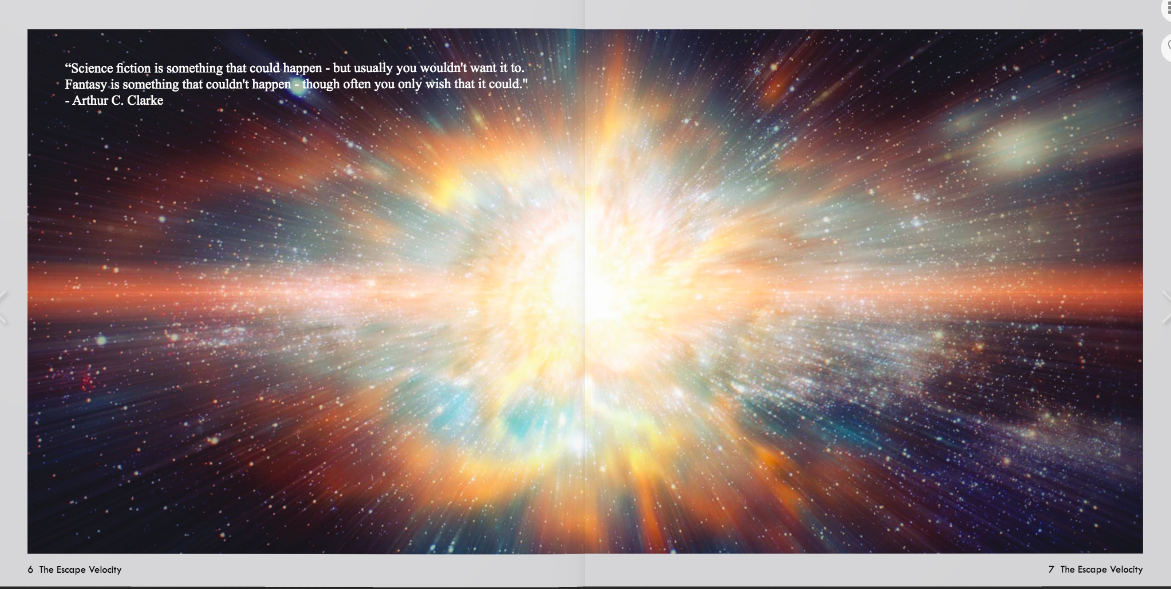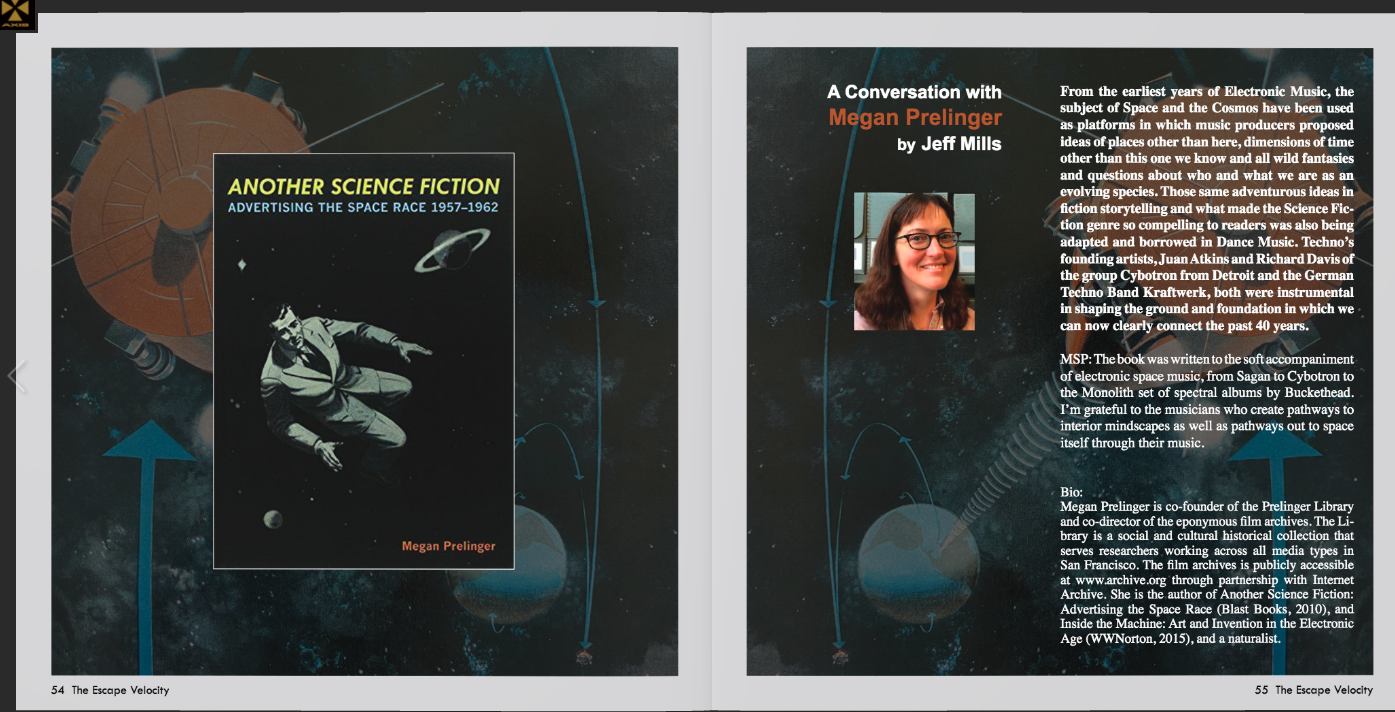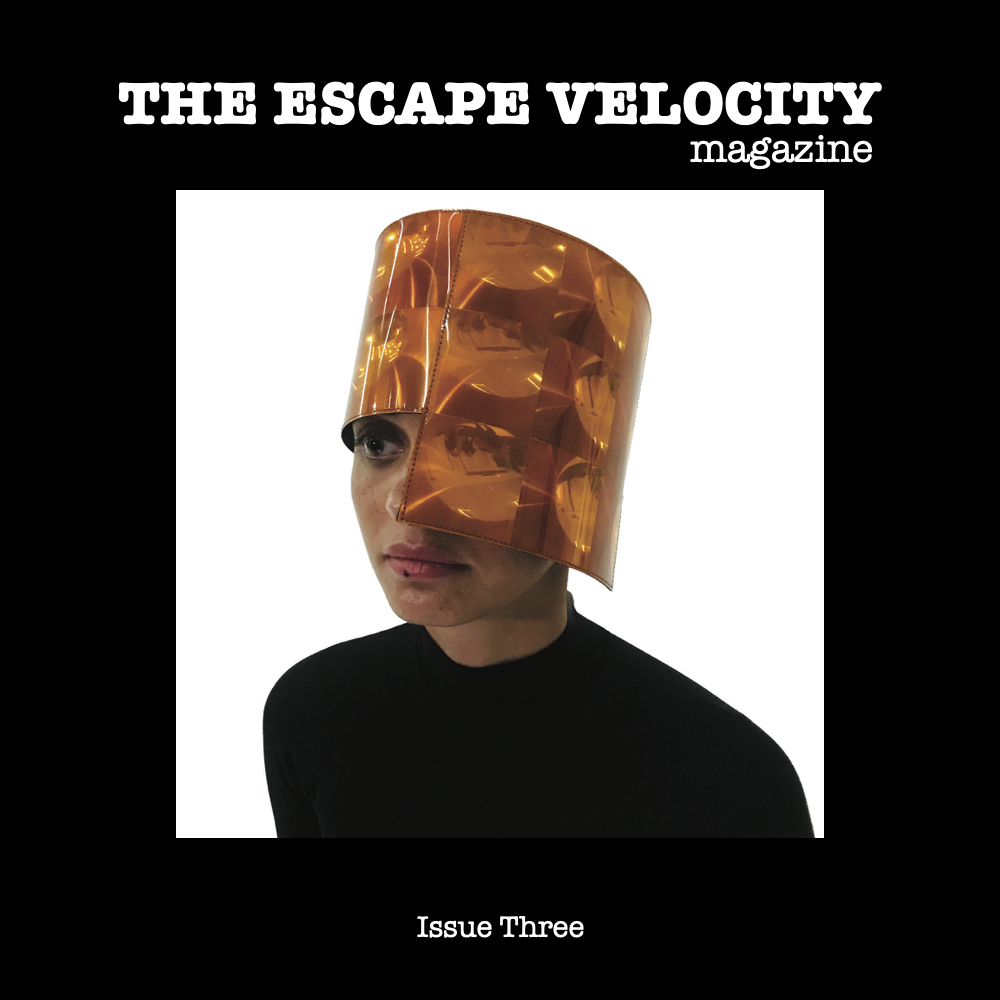Jeff Mills is a legend and pioneer in the dance and electronic music world, known for constantly renewing the times. He has released numerous albums based on his notion of a distant future and the direction of the world. We explored his mind re The Escape Velocity Magazine, a digital magazine he announced this year out of the blue, and The Clairvoyant, his latest album released in February.
Following techno music is similar to storytelling
Jeff Mills is a renowned legend and pioneer who has frequently renewed the zeitgeist by contemplating countless science fiction works, futurism, and outer space.
In recent years, he has expanded the electronic scene by offering the world many outstanding albums such as Exhibitionist 2 (2015), which features the Roland TR-909, a drum machine centered on versatility, and Planets (2017), the result of his collaboration with Orquestra Sinfónica do Porto Casa da Música.
Did you know he’s continued to proactively put out his work since the pandemic began last year? One such example is The Escape Velocity Magazine, a free digital magazine he released through his label, Axis Records, in February.
The first issue includes the artist’s interview with DJ Surgeles. The impactful visuals undeniably speak to the reader’s senses, and the video content stands out, as it’s something only a magazine in a digital format could achieve. Other interviewees include Mike Storm and Tadeo, who have both released music on Axis Records. The second issue has a video on the cover, and there’s a comment given by the butoh dancer and director Akaji Maro inside the magazine. The Escape Velocity Magazine is filled with Jeff’s passion for what he wants to do right now. By the time of writing, the third issue is expected to be out on July 30th.
If we consider the recent collaborations and creations he’s worked on with increased enthusiasm, it can be said that this highly ambitious and zestful magazine didn’t come out of left field. Why did he choose a digital magazine as a means of expression? Was it because of the change in his mindset brought on by the pandemic? We get down to his true intentions.
This digital magazine says the following in the introduction: “We’re ready to examine and explore all that revolves around the mechanics of creativity”. It features content focusing on artists’ creativity.
——Could you talk about how you came to publish a free digital magazine of an impressive size? Would it be safe to say that the fact you couldn’t communicate with your listeners on tours or shows because of covid served as the catalyst?
Jeff Mills (Jeff): I don’t think it was related to the pandemic. The idea to create a digital magazine came from opening up our record label, Axis Records to many artists and the need to have something like a catalog or fanzine to speak about their work, ideas, and concepts.
——In the magazine, you touch on futurism, science fiction, your love for outer space, fantasy, and so forth. How do you think these things could inspire the reader?
Jeff: I have a theory that many people who follow techno music are sci-fi fans. It’s very close to fantasy and sci-fi storytelling. Hopefully, these subjects could reinforce the interest of our readers.
A new album referencing the plague from a century ago
In 2020, clubs all over the globe had to temporarily close their doors amid prolonged lockdowns, including Chicago and New York, where Jeff is based. He released his full-length album, The Clairvoyant, this February after a peculiar period where venues for dance culture were gone. Even before the pandemic, he has continued to produce albums people could enjoy at home, not just at his live shows. I asked him about his current state of mind and the future of electronic music.
——Were there any changes in your mindset after the pandemic? Could you talk about your stance as a musician today?
Jeff: My mindset and overall perspective relating to creating music weren’t affected by the pandemic. I found this occurrence as something of a wake-up call: a reminder that in our societies, there isn’t anything that compares to music and what it can do for us (if applied properly). As a musician, it strengthened my belief that music serves to enlighten the world.
——I thought your latest album, The Clairvoyant, was packed with hidden ideas of our new daily lives as well as tracks with titles like “Remote Viewing,” which symbolize a post-pandemic world in a digestible way. It has a spacy sound with roundish beats and glitchy swings. What was the inspiration behind the album, including the sampled sounds of live instruments?
Jeff: I believe each human lives another life in their mind. “Normal” life, the one that relates to the interaction with other people and is goal-driven, can be so consuming. It can be a distraction. The other life, the one that stays within the mind and is rarely revealed, is the one that drives emotion. It shapes what we dream and is the most dangerous. Such was the source of my inspiration.
——”Clairvoyant” is the title of one of your songs, and it also was a topic of great discussion in the 1920s. If there was one in 2021, what sort of role do you think they would play?
Jeff: Although it was just 100 years ago, so much has changed dramatically. On the other hand, there are many similarities between then and now that make us react in similar ways. Much like how the plague killed many people in the 1920s, the pandemic caused many sudden deaths worldwide. The desire to metaphysically reconnect with loved ones has grown. Perhaps [a clairvoyant] would fulfill that desire, though I’m not sure.
——Clubs couldn’t do business because of covid. Do you think listening to music at home could save us in the future? Jeff: To put the pandemic into a better perspective, humanity got off easy this time. Just imagine if it happened during the beginning of the four-year president Trump administration! It would’ve taken more lives. We would’ve had to suffer for not a few years but decades. If 2020 was a year when dance culture was taken away, it was a sacrifice to keep people healthy and safe. Also, home listening has always been more common than live event listening, so this has fundamentally not changed.
Jeff’s message to everyone who loves musicians and music
——The overall music scene and local club scene in Japan are under dire circumstances because of several states of emergencies. What are your opinions or advice to musicians, DJs, party planners, and those involved in music?
Jeff: If you’re a musician or DJ: use this pause to master something. Don’t just learn it, but master it. Study music and other artists you like to think about ways to go further on the idea. If you work in other parts of the music industry, find all the issues and problems and devise a plan to improve them. If you’re an avid listener of music, please understand that music styles will always change. And that artists will always change their minds and grow, even if you won’t or can’t see it.
——I presume you’ve seen many transformations in dance music and music cultures, such as the Detroit techno scene in the 80s and European music circles that shifted from underground to the mainstream in the 90s. Do you think the post-pandemic era will be a turning point in electronic music culture? Further, is there anything you’re anticipating in the future?
Jeff: Looking into the 2020s, I expect to see new music genres. I’m not sure if these will replace the ones we currently have now, but it will be an era where the formula of what defines success will be challenged more and more. Monumental things like the colonization of Mars and the settlement on the moon might occur. That will trigger creative reactions. I anticipate that new ways of thinking will be launched by such rapid innovation.
Jeff Mills
Born in Detroit, USA in 1963, He is a DJ and producer. A pioneer of Detroit techno, the origin of today’s electronic music, he was awarded the Chevalier des Arts et des Lettres by the French government in 2007. In recent years, he has performed with orchestras in various countries, and released “Where Light Ends,” a collaborative work with Mamoru Mohri, director of the National Museum of Emerging Science and Innovation and an astronaut. In February 2021, he launched a web magazine called “The Escape Velocity”, which will mainly feature interviews with musicians, but will also include interviews with photographers and columns on science fiction novels.
Direction Kana Miyazawa
Cooperation Pull Proxy






